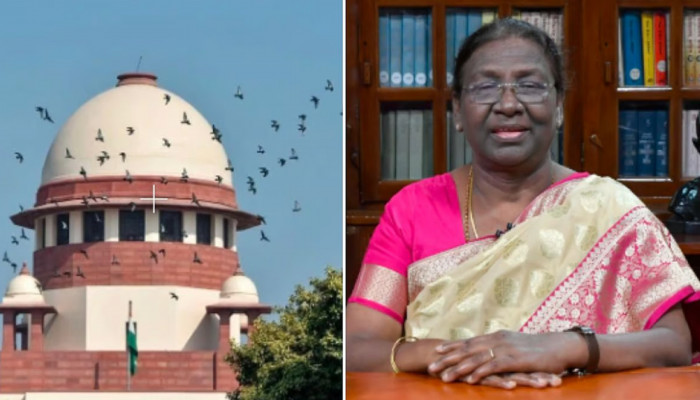Supreme Court imposes first-ever deadline for Presidential decision on bills
- In Reports
- 06:20 PM, Apr 12, 2025
- Myind Staff
In a historic decision, the Supreme Court has ruled that the President must make a decision within three months on bills sent by governors. This ruling came after the court overturned the Tamil Nadu Governor's decision to delay approval of pending bills on Tuesday. The verdict was made public on Friday.
In the case concerning Tamil Nadu, a bench of Justices JB Pardiwala and R Mahadevan stated that the President's actions under Article 201 are open to judicial review. According to Article 201, if a Governor reserves a bill for the President’s consideration, the President must decide whether to approve the bill or reject it. However, the Constitution does not mention any specific time limit for the President to make this decision. The Supreme Court has emphasised that the President cannot delay the decision indefinitely—meaning they cannot use a "pocket veto." The President must either give assent or withhold it. "The position of law is settled that even where no time limit is prescribed for the exercise of any power under a statute, it should be exercised within a reasonable time. The exercise of powers by the President under Article 201 cannot be said to be immune to this general principle of law," the Supreme Court said.
A two-judge bench stated that if there is a delay of more than three months, proper reasons must be given in writing and shared with the concerned state. "We prescribe that the President is required to take a decision on the bills reserved for his consideration by the governor within a period of three months from the date on which such reference is received," the top court said. The court also stated that if no action is taken within the given time, the affected states can go to court for help. It further clarified that if a bill is put on hold because there are doubts about whether it follows the Constitution, the executive should not act like the courts. Instead, such issues should be sent to the Supreme Court under Article 143.
"We have no qualms in stating that the hands of the executive are tied when engaging with purely legal issues in a bill and only the constitutional courts have the prerogative to study and provide recommendations as regards the constitutionality of a bill," the Supreme Court said. The Supreme Court ruled that Tamil Nadu Governor RN Ravi acted against the law by not giving his approval to 10 bills passed by the DMK government. The court also said that governors must act on bills within a specific time, and if they don’t, the courts can review their inaction.







Comments